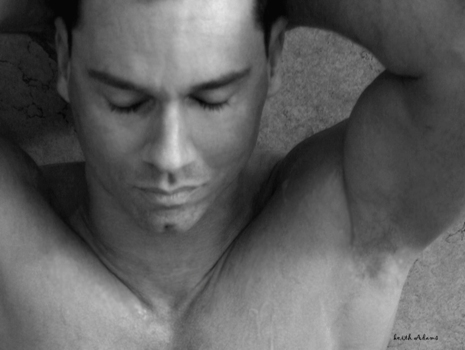
It's conventional thinking that the recent years, in which affective mental illnesses such as depression have been routinely considered alongside non-mental ("physiological") illness, instead of as a character defect, have helped to reduce stigma. A very interesting article in this Sunday's NY Times Magazine ("The Americanization of Mental Illness"), raises the uncomfortable supposition that the reverse is true, and cites several studies that seem to show a decrease in the percentage of the U.S. population who'd feel comfortable associating with somebody who is mentally ill (in this case, schizophrenic.)
Before getting into the argument, I should mention that this was not the main thrust of the article, which was, instead, the idea that American/Western views of mental illnesses as more or less discrete categories that can be pigeon-holed, is sweeping around the world, overwriting local, culturally based interpretations.
At first, I found myself not quite buying the author's central thesis, since he (Ethan Watters, of "Urban Tribes") seems to focus almost exclusively on what might be called "hysteria" based categories of mental illness, such as anorexia; forgotten, historical "contagions" such as " hysterical leg paralysis"; and culturally-specific syndromes such as "going amok" in parts of Southeast Asian. In the latter case, amok is indeed covered by the gold-plated DSM manual, but only tucked away at the very end, in a category confined to local cultures.
The argument seems to say, essentially - and this is not unconvincing - that if you don't have an American mental-illness, you're on your own. His initial concentration on hysterical illnesses (false pregnancy is another example, although not mentioned by the author) inevitably leads to the question in the reader's mind, how does this apply to disorders that are clearly neurological, and less "provincial", such as bipolar disorder (about which I have an understandable interest)?
To the author's credit, he does mention schizophrenia in this strand of the argument, and admits that it is not, obviously, strongly culturally mediated, but I was initially left wondering how much this diminished the power of his argument. As a side note, however, it is very interesting to learn that schizophrenic recidivism is much higher in the West than elsewhere, and the author argues, again convincingly, that part of this may be explained by other cultures not regarding such illnesses as having "broken" the sufferer, and that during the times the person is well, he returns to a full, unrestricted role in society.
This brings Mr. Watters to the issue of stigmatization, in the second half of the article, and it was from this point in the article, that I began to appreciate and concur with his argument more enthusiastically. The idea is very simple: in the movement to promulgate - for commendable reasons - the notion that mental illnesses may be classified as being physical disorders and illnesses, the side effect is that the mentally ill person begins to be perceived, by the average person, as permanently "broken". In earlier decades, when people routinely held the view that, say, a depressed person was responsible for his condition, and should somehow "snap out of it", that person was considered "fixable", and therefore not so different from the average person.
This was an interesting idea to me. I went through 15 years or so of unipolar depression before my one and only major manic episode at the age of forty-one. Whereas, when I was in my depressive years, I could accept, intellectually, that depression was a disease not a character defect, there was always shame associated with it. If I returned to therapy and admitted I'd fallen into another cycle of depression, I'd feel - however wrong-headedly - somehow as if I'd failed.
In contrast, although I wouldn't wish bipolar disorder on anybody, there was a measure of relief in receiving the diagnosis, since the disorder is so clearly and experientially neurological. And indeed, the nature of my depressive cycles has changed: the months of mania somehow burned out a lot of the old neuroses that frequently triggered depression: jealousy, abandonment, etc. Now, the depressions are never situational, but feel, rather, distinctly organic.
To quantify this for my own situation, I'd have to say that my life is better than ever right now, and both fulfilling and exciting, given how much I'm enjoying my current software project, and, more importantly, given the recent publication of my book - what you might call a memoir of mania - Broken Whole: a California tale of Craziness, Creativity and Chaos. And yet I remain stubbornly in a depression that began in June. I never thought I'd reach a point where I'd no longer need therapy, but I see myself as having arrived at a point of balance where I don't have any major issues, such as self-hatred, amenable to talk therapy treatment. Yet depression routinely and rudely returns, as the dominant partner of bipolar disorder.
In my blog, in which I write often about depression and bipolar disorder, I've made a frequent point to help raise awareness that depression is often a neurological condition. I thought that in so doing, I was not only helping to remove the stigma of depression, but also making clear that I wanted to be treated as if I had any other illness - say, Parkinson's - that is clearly identifiable as physiological, and not, somehow, my fault.
I don't, actually, expect to go back on my own argument, since it's an important part of my self-identity: I think of myself as having merely an illness - albeit a serious one - called bipolar disorder, that doesn't define me, and doesn't make be broken. However, the article provided a lot of food for thought.





Comments